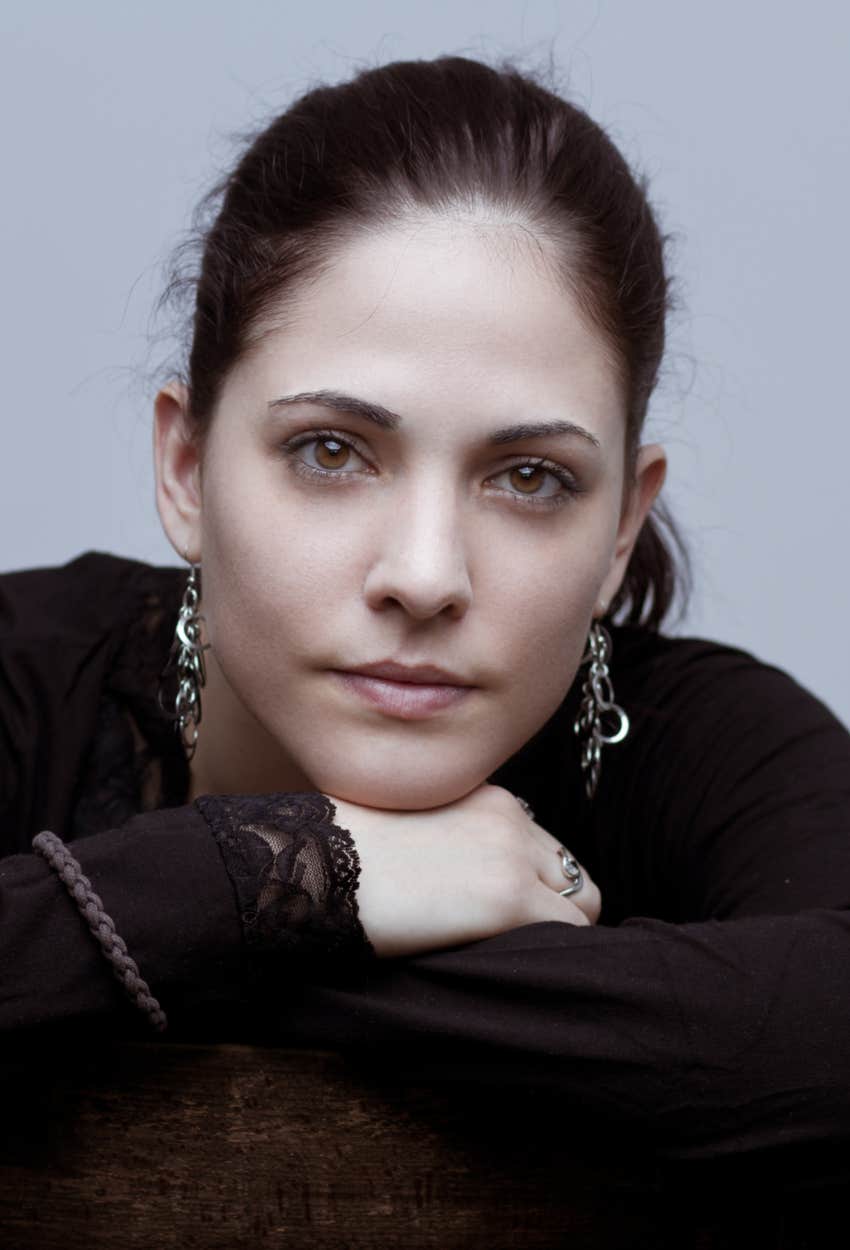Women Who Had To Grow Up Too Fast Often Make These 3 Mistakes Once They Fall In Love, According To Research
Women may struggle with opening up and being vulnerable if they were parentified as kids.
 Samir Vanegas | Unsplash
Samir Vanegas | Unsplash When a child is forced to assume adult responsibilities in a family, often referred to as parentification, it can manifest later in life in various ways. And while there are many reasons why a parent might lean too heavily on their kids for help, the results are often the same. A child must sacrifice their own needs before they have the wherewithal to do so. Unfortunately, this can impact how they form relationships as adults.
For women, being parentified adults means they may struggle to have healthy romantic relationships. A study found that parentification was associated with low authenticity, low need satisfaction, high pathological concern, and unhealthy relational entitlement in romantic relationships. Women may not realize at first, but because of how they were raised, they may feel unfulfilled with their romantic partners. Sadly, women who had to grow up too fast often make these three mistakes once they fall in love:
1. They have difficulty being honest and true to who they are
 c12 | Shutterstock
c12 | Shutterstock
As children, being parentified meant that love was earned by sacrifice. It was conditional, meaning you had to neglect your own needs to gain favor from those around you. In romantic relationships, women may be comfortable hiding who they are and refusing to be vulnerable because they not only want to keep the peace, but they also fear rejection.
However, you simply cannot have a healthy and long-lasting relationship without shedding back your layers and learning to be comfortable with vulnerability. Licensed couples counselor Kari Rusnak explained, "Being vulnerable creates emotional intimacy and connection. Opening yourself to your partner shows and builds trust and helps them understand you on a deeper level."
"A way to increase trust is to test it out, and by letting your partner in, you are giving them an opportunity to earn that trust. This can increase empathy from your partner as they get to understand you in a new way. It allows them to be there for you and meet your needs. For yourself, it can improve self-acceptance, and things that once felt vulnerable can no longer feel that way."
2. They sacrifice their own needs to care for their partner's
As children, being parentified meant that everyone else's worries and burdens came first. Whether parents were dealing with mental health issues, divorce, physical illness, or were just emotionally absent and unavailable, parentified children had to step up to the plate. That made them incredibly observant and aware of what others needed.
Licensed clinical social worker Maggie Malone, who specializes in women struggling with self-doubt and anxiety, explained, "Adults who were parentified as children often exhibit an exaggerated sense of responsibility for others, sometimes neglecting their own needs. They may feel neglected or disappointed in their relationships since they are always the ones doing everything. They may even unintentionally keep the other person from stepping up because they fear losing control and can’t trust others to get the job done."
These women may even struggle with being the problem-solver and even the therapist for their partner. Because they didn't have that safe space to express their emotions growing up, they're just more comfortable offering support than receiving it.
Malone also pointed out that parentified women might seek out partners who need to parent, even without realizing it. She said, "They might unconsciously seek out relationships where they can fulfill a caregiving role, recreating the dynamic from their childhood."
3. They feel undeserving of having their needs met
 Aleshyn_Andrei | Shutterstock
Aleshyn_Andrei | Shutterstock
Women who were forced to grow up too fast spent most of their lives giving everything to other people, whether it was their siblings or even their parents. The thought of being cared for is probably such a foreign concept because they just don't know what that looks like.
They most likely freeze up when their partner shows kindness, compassion, and most of all, support, especially when they might be suffering or feeling overwhelmed. Cheryl Groskopf, LMFT, LPCC, told VeryWell mind, “They often feel selfish or dramatic when they express their own needs.” This is directly related to being a caregiver before fully developing emotionally.
They believe they're "too much" because, in childhood, they learned that love isn't safe. It's a cycle that takes years to unlearn. Love should uplift you, rather than burden you. It should be a mutual give and take that benefits both partners. That's why it's important to really prioritize self-care and pour love back into yourself when you may not have gotten that as a child. You are worthy of having your needs met, and they've always been important and worth acknowledging.
Women who were parentified as children also often show many positive attributes as adults. As Groskopf noted, "many parentified daughters grow up to be organized, dependable, and emotionally aware." They must, however, recognize that in order to have a healthy relationship with anyone, friend or lover, there must be reciprocal intimacy. If that's missing, they need to start prioritizing healing their inner child by learning to trust others and acknowledging that they are worthy of care as well.
Nia Tipton is a staff writer with a bachelor's degree in creative writing and journalism who covers news and lifestyle topics that focus on psychology, relationships, and the human experience.

